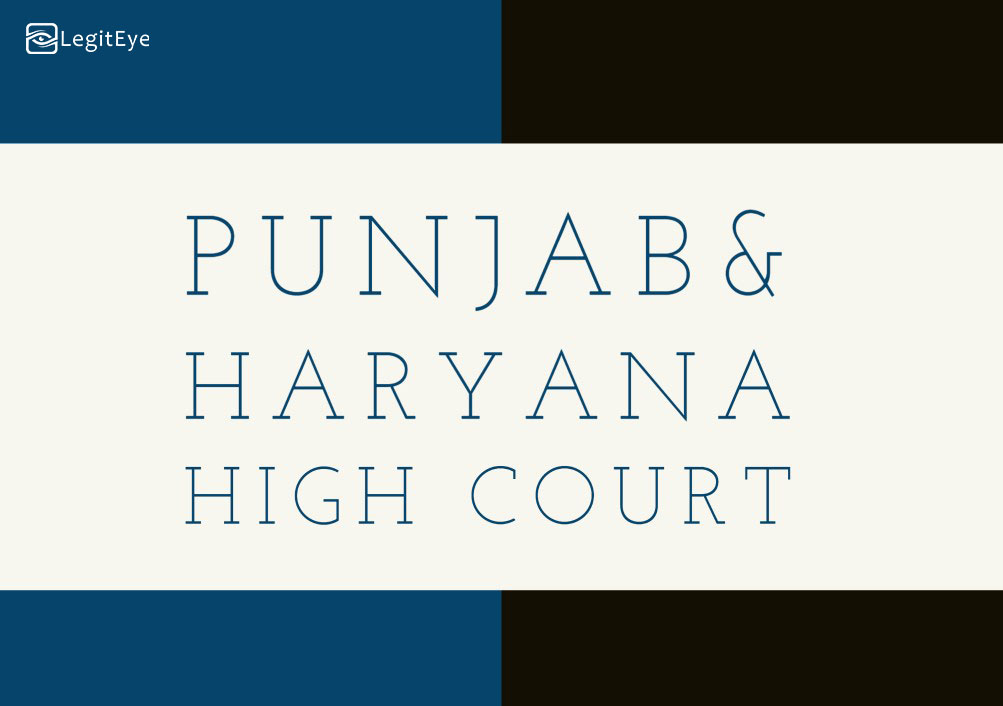Supplementary chargesheet u/s 173(8) of CrPC is continuation of report filed u/s 173(2), which remains part of case record and can be used by accused: P&H HC

Read Order: Gurjinder Singh and Another v. State of Punjab and Another
Monika Rahar
Chandigarh, January 25, 2022: While dealing with a challenge to certain summoning orders issued by the Trial Court against accused-petitioners in a rape case, the Punjab and Haryana High Court has held any supplementary chargesheet presented under Section 173(8) of the Cr.P.C. would be in continuation of the report filed under Section 173(2) of the Cr.P.C. and would remain part and parcel of the record of the proceedings of the case.
The Bench of Justice Jaishree Thakur also said that in the eventuality of the police submitting a supplementary chargesheet qua the investigation of accused against whom the report was not initially submitted, the procedure adopted will remain the same as applicable to a report under Section 173(2) Cr.P.C.
In this case, the prosecutrix was kidnapped and raped by three accused (including the two petitioners). Upon investigation, accused Gursewak Singh was arrested, a report under section 173(2) of the Cr.P.C. was submitted and charges were framed only against Gursewak Singh, as inquiry against the present two petitioners was still pending. The trial commenced against accused Gursewak Singh and the prosecutrix was examined as a prosecution witness.
Pursuant to her testimony, the Trial court directed the Police to file the status report pertaining to the role of the two petitioners, consequent to which, a supplementary chargesheet under Section 173(8) of the Cr.P.C. was filed, declaring petitioners innocent. Thereafter, an application under Section 319 of the Cr.P.C. was filed by the prosecutrix to summon the petitioners as additional accused to face the trial along with accused Gursewak Singh, which was allowed.
When the matter was fixed for framing of charges against the petitioners, they filed an application for setting aside/recalling the impugned summoning order as well as an application under Section 227 of the Cr.P.C. for discharge. Aggrieved, the petitioners filed the instant petition under Section 482 of Cr.P.C. impugning the summoning order.
The petitioners’ counsel argued that if the supplementary chargesheet, declaring the petitioners innocent, was not accepted by the Trial Court then it would not form a part of the court record and they would not be able to rely upon it at the time of their defence.
On the contrary, the complainant’s counsel opposed the petitioners’ case by submitting that the investigation agency kept on lingering the investigation and petitioners made frivolous applications to further delay the case. Lastly, it was argued that once the trial court passed an order under Section 319 of the Cr.P.C., and summoned the petitioners to face the trial along with accused Gursewak Singh, the Trial court had no power under Cr.P.C. to recall its own order or discharge the accused persons, as would amount to recalling of its own order.
The Court at the outset made it clear after having a look at the provisions of Section 173 of the Cr.P.C. that the court was not bound by the opinion drawn by the police officer in the report under Section 173 of the Cr.P.C., as the court could not act merely as a post office or a mouthpiece of the prosecution, but had to consider the broad probabilities of the case, the total effect of the evidence and the documents produced before the court while applying its judicial mind.
“On being unsatisfied with the report under Section 173(2) of the Cr.P.C., the court is very well empowered to ask for further investigation, as would be evident from the provisions of Section 173(8) Cr.P.C.”, said the Bench.
Further, while addressing the contention of petitioners’ counsel on the supplementary chargesheet not becoming a part of the record, the Court observed that this argument was not sustainable in view of the detailed procedure provided under Section 173 of the Cr.P.C., and the accused can rely upon the same as per the provisions of the Indian Evidence Act.
Moreover, the Court noted that the Trial court nowhere held or observed that the supplementary chargesheet would not be read as part of the evidence, rather the lower court did not accept the finding of innocence of the petitioners as recorded by the Police. The Court was also in agreement with the Trial Court’s observation to the effect that the cell tower locations are not conclusive proof of anybody’s presence or absence on a particular spot.
Regarding the legal position governing summoning of a person, the Court opined that the power to summon a person as an additional accused is undisputed, but the same has to be exercised sparingly, with caution, and to be exercised in order to ensure that the culprit does not get away. For the above stated proposition, the Court relied upon the decision of the Constitution Bench of Supreme Court in Hardeep Singh v. State of Punjab, (2014) 3 SCC 92.
The Court further opined that the prosecutrix consistently implicated all the accused persons for committing rape on her and therefore, her testimony could not be negated merely because the investigation agency submitted a report declaring the petitioners innocent.
Thus, finding no infirmity or illegality in the impugned order of the Trial court, the Court dismissed the petition.
Sign up for our weekly newsletter to stay up to date on our product, events featured blog, special offer and all of the exciting things that take place here at Legitquest.




Add a Comment